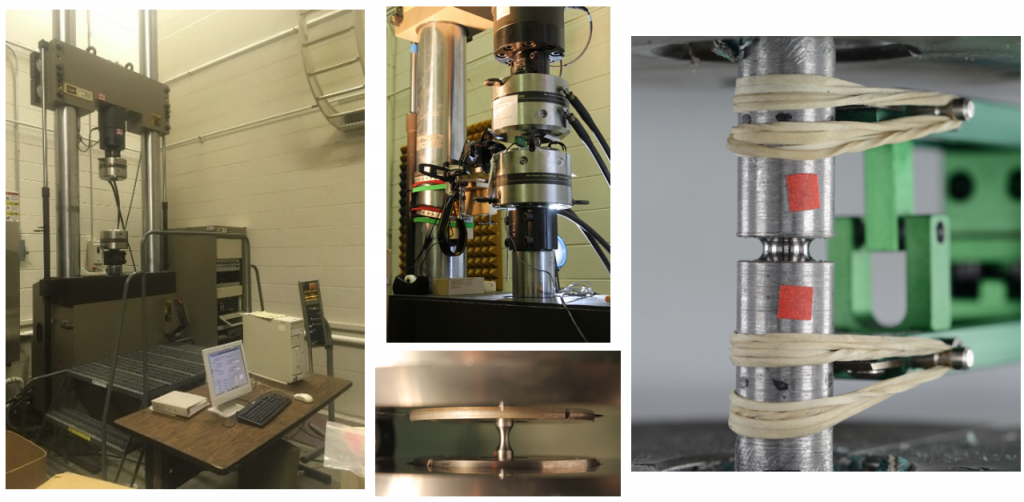Adrian Patricio Tola Tola

BS from University of Cuenca
MS from Virginia Tech
Research Project: Analytical and Experimental Assessment of Ductile Fracture Due to Low-Cycle Fatigue in Steel Structural Components
Earthquakes can induce large strains in structural components within a small number of cycles and cause its failure; such a mechanism is denoted as Low-Cycle Fatigue (LCF). Mathematical expressions describing the material deterioration due to LCF are often denoted as LCF laws, and these are usually a function of stress-state parameters, i.e. triaxiality and Lode angle. This study performs calibration of existing LCF laws using experiments on 72 circumferentially notched specimens (material level), and it validates such calibrations on 6 large-scale experiments (component level).
The notched specimens belong to the flat and corner regions of two A1085 steel tubes: HSS 8×6×1/2 and HSS 6×4×1/4, and they are subjected to monotonic-axial and cyclic-axial, torsional, and combined axial-torsional loading. The implementation of cyclic-axial-torsional tests on notched specimens constitutes a fundamental piece of this work, and it is novelty to achieve stress-states characterized by low and intermediate pair values of triaxiality and Lode angle.
The experiments at the component level are performed on a beam, a long brace, and a short brace (two of each), all of which using the same tube material as the material tests, and all subjected to cyclic loading. The purpose of these tests is to validate the calibrated LCF laws against large-scale components. To achieve such goal, finite element simulations are used in combination with LCF laws to predict the instant and location of fracture initiation from analyses and provide comparison with the experimental observations.

More People:
- Maria Mercado
- Omar Al-Masarani
- Omkar Tawade
- Hunter Hutton
- Pratiksha Dhakal
- Edward Gil
- Raul Avellaneda
- Mahyar Zarat-Basir
- Gengrui Wei
- Hyeeun Kong
- Javier Avecillas
- Trai Nguyen
- Ryan Stevens
- Xiaogang Huang
- Basit Qayyum
- Wenhao Pan
- Lucas Gabriel Costa De Lemos
- Hongsong Hu
- Pu Yang
- Karim Laknejadi
- Qicai Li
- Rohit Grandhi
- Sagar Shah
- Trevor Szabo
- Patrick O’Brien
- Haseeb Tahir
- Alireza Farzampour
- Nina Zheng
- Jessie Thangjitham
- Yujia Chen
- Gage Pepin
- Nonish Jain
- Kara Kea
- Michael Wood
- Adam Phillips
- Ebrahim Abbas
- Trevor Bruce
- Eric Johannigmeier
- Marlin Jake Lamb
- Armen Adekristi
- Brad Toellner
- Robert Orsa
- Natalia Egorova
- Charles Watkins
- David Padilla
- Abhilasha Maurya
- Pradeep Naga
- Manasa Koppal
- Scott Darling
- Matthew R. Eatherton
